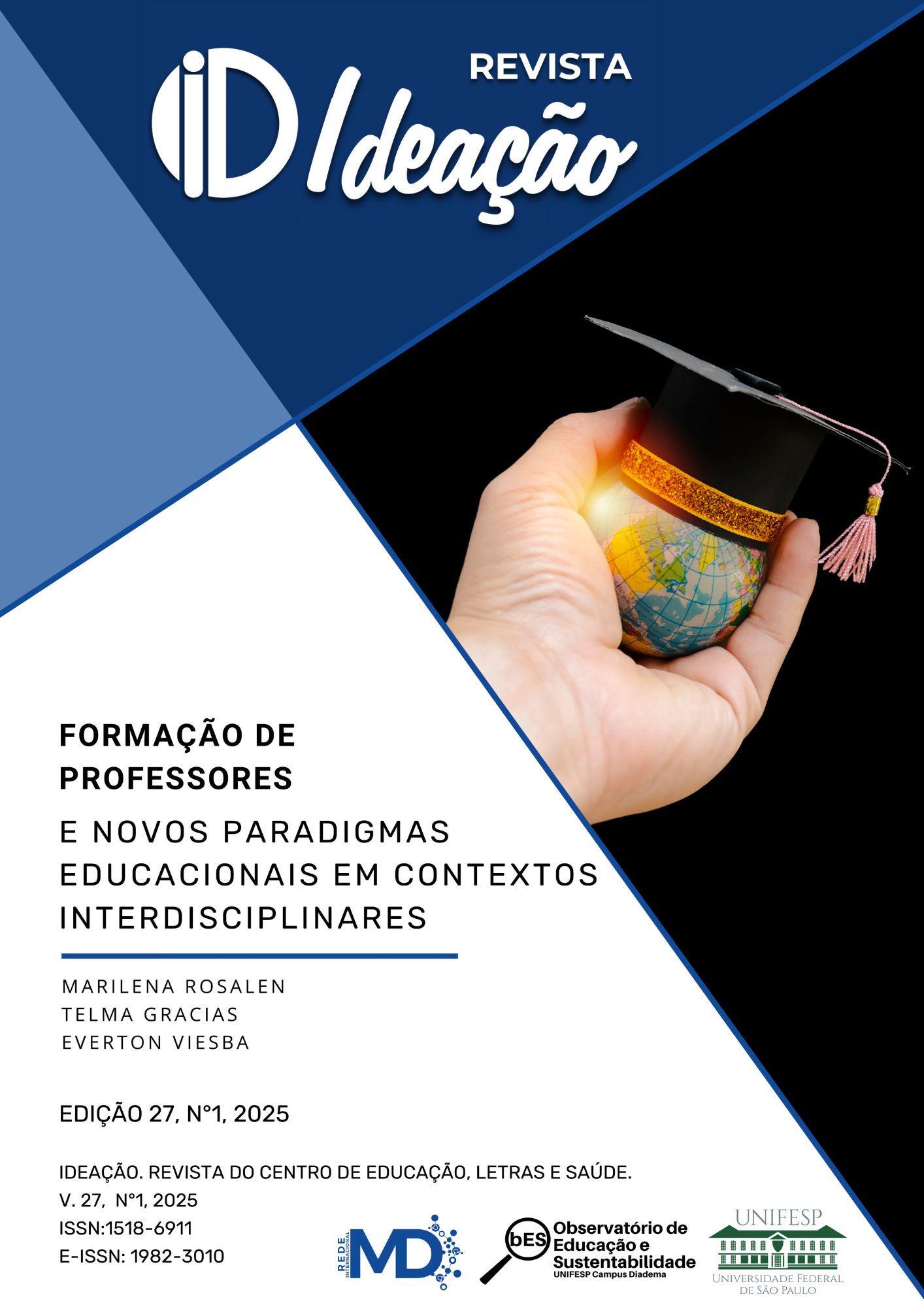EXPERIÊNCIA FORMATIVA NO ENSINO DE CIÊNCIAS
PERCEPÇÃO DOS RESIDENTES NO USO DE METODOLOGIAS ATIVAS EM BOA VISTA/RR
DOI:
https://doi.org/10.48075/ri.v27i1.34794Palabras clave:
Ensino de Ciências, Residência Pedagógica, Metodologias AtivasResumen
O presente trabalho visa compartilhar as vivências da sala de aula de acadêmicos da Licenciatura em Ciências Biológicas, Universidade Estadual de Roraima - UERR, que atuaram como residentes do Programa Residência Pedagógica - PRP, na disciplina de ciências e biologia no colégio de Aplicação - CAp em Boa Vista, Roraima. Nesse cenário, o PRP e a escola, proporcionaram aprendizagem, formação, desenvolvimento, integração e adoção de práticas metodológicas que promoveram aquisição de habilidades específicas para residentes e alunos, visto isso, o trabalho destaca a importância das atividades práticas e lúdicas, transformando o saber científico em saber escolar. Com isso, a prática docente foi desenvolvida com alunos do 7°, 8º e 9º ano do Ensino Fundamental II, nos anos de 2023 e 2024, nos módulos 1, 2 e 3 do PRP/UERR, onde os residentes, optaram por trabalhar com atividades práticas e lúdicas no ensino de Ciências, a partir do uso de metodologias ativas. Por fim, os resultados obtidos indicaram que as atividades práticas e lúdicas possibilitaram aos alunos a construção do conhecimento, apropriando-se dele e tornando-os indivíduos autônomos sendo capazes de ter um pensamento crítico possibilitando o desenvolvimento do ensino e aprendizagem, o que despertou o interesse e a motivação em sala de aula e promoveu um ambiente de aprendizagem mais dinâmico e participativo.
Descargas
Publicado
Cómo citar
Número
Sección
Licencia
Derechos de autor 2025 Direitos partilhados conforme licença CC BY-NC-SA 4.0

Esta obra está bajo una licencia internacional Creative Commons Atribución-NoComercial-CompartirIgual 4.0.
Política a respecto de publicaciones periódicas de libre acceso
Los autores que publican en esta revista están de acuerdo con los siguientes términos:
1. Los autores conservan los derechos de autor y conceden a la revista el derecho de primera publicación, y la obra se licencia simultáneamente bajo la Licencia de Atribución de Creative Commons, lo que permite que la obra se comparta con el reconocimiento de la autoría y la publicación inicial en esta revista.
2. Los autores están autorizados a asumir contratos adicionales por separado, para la distribución no exclusiva de la versión de la obra publicada en esta revista (por ejemplo, para publicarla en un depósito institucional o como capítulo de un libro), con reconocimiento de la autoría y la publicación inicial en esta revista.
3. Se permite y alienta a los autores a que publiquen y distribuyan su trabajo en línea (por ejemplo, en repositorios institucionales o en su página personal) en cualquier momento antes o durante el proceso editorial, ya que ello puede generar cambios productivos, así como aumentar el impacto y la citación del trabajo publicado (véase El efecto del acceso abierto).
Licencia Creative Commons
Esta obra está licenciada bajo una Licencia Internacional Creative Commons Reconocimiento-No comercial-CompartirIgual 4.0, que permite compartir, copiar, distribuir, exhibir, reproducir, en su totalidad o en partes, siempre que no tenga un propósito comercial y se citen los autores y la fuente.


